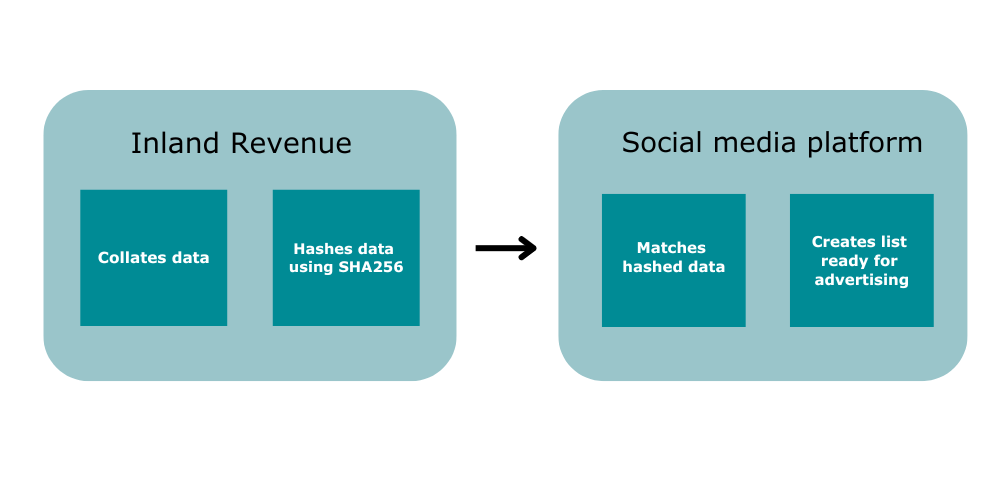Between 2014 and 12 September 2024 we used custom audience lists on social media as one way to provide important updates, information and reminders to help you get your taxes and entitlements right.
We no longer use custom audience lists
On 12 September we paused the use of custom audience lists due to public concern while we undertook an internal review. This was led by our Chief Information Security Office (CISO) and included reviewing the use of hashing to ensure it is safe to use and security of the platforms.
Having undertaken the review, we believe that the process taken in using custom audience lists in targeted social media marketing is recognised as legitimate both in New Zealand and internationally. However, there is ongoing public concerns about the practice of using custom audience lists for social media advertising.
We recognise the importance of building and maintaining public trust as a cornerstone of an effective tax and social policy system. For these reasons we have stopped the use of custom audience lists for the foreseeable future.
We announced the findings of our review at a media briefing on Tuesday 5 November. You can read the media release here:
You can read the full report outlining the findings here:
We have also had our review independently reviewed by Geof Nightingale. You can read his report here:
Custom audience lists helped us direct messages to specific customers with relevant information and reminders. This included letting them know about entitlements like Working for Families, or telling them when they had returns or debt due. This enhanced our ability to ensure taxpayers met their obligations and received their entitlements.
Examples of custom audience advertising are:
- Student loan customers where we could separate the audiences for accuracy, so customers based overseas were reminded about the repayment dates, while customers based in New Zealand received relevant messages if they were self-employed or earned a salary or wage.
- GST customers who had returns and/or a debt due.
- Working for Families customers who may have qualified for certain entitlements or were reminded that they needed to update their information if they had a change in circumstances.
By using these lists we were able to direct advertising to those customers who needed to see the message and we were also able to reach them on a platform they used such as Facebook.
The custom audience feature allows businesses and government departments to upload de-identified information (referred to as hashed information) to the platform, for direct marketing purposes.
A list of identifiers was uploaded into our browser belonging to individuals that we wanted to target with ads. This data was hashed within our browser before being uploaded to the social media platform.
Identifiers used included first name, surname, date of birth, email address, phone number, city, postal code and country.
The custom audience is the list of customers we could then target relevant advertising with. We were not able to see who ends up in this matched list, just the approximate number of people in the audience.
How custom audience lists were loaded

If customers had not given information to the social media platform or do not have an account with them, the hashed data will not match and is deleted.
When we uploaded the file of information to the social media platforms it went through a process called hashing, which de-identified the data. Hashing is a process of scrambling raw data into a fixed-size string of seemingly random characters called a hash and is a commonly used technique in day-to-day digital life e.g. logging into a banking app or checking the integrity of a file you download from the internet.
To ensure the transfer of the hashed data was safe, we used additional transport layer security using recognised encryption channels. The hashed data was uploaded in a process that connects machine to machine with no human intervention.
The hashed data from our list was only used if it could be matched with information customers had already provided on their social media accounts.
You might still see advertising from us such as on a billboard or an advert on social media, but we do not use custom audience lists for these.
We advertise on social media without using custom audience lists. For example, when we needed to reach customers to let them know about the support available during Cyclone Gabrielle, we used geographic targeting in social media platforms to display adverts only to people in the affected regions.
What did you like about this page?
Please tell us how we could improve this page?
Thanks for sharing your opinion! Your feedback has been received.
Sorry there was an issue submitting your feedback, please try again later.

